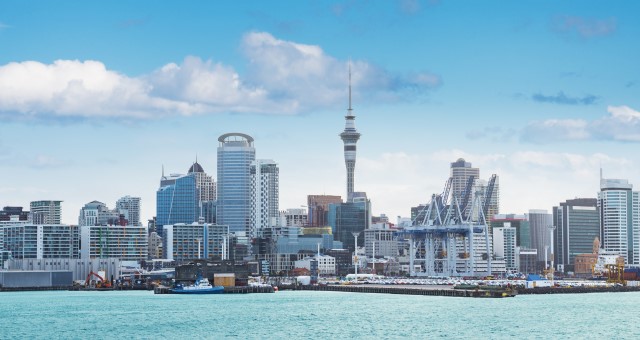New Zealand’s hotels are experiencing a long-awaited resurgence in bookings thanks to higher numbers of international visitors entering the country, according to the latest research by JLL.
Hotel occupancy, which is at a market average of 70%, is up 15% year-on-year, but remains down (-9%) on pre-pandemic levels.
Rotorua’s hotel occupancy rate showed the most improvement, up 39% compared to 2022, slightly ahead of Queenstown, which was up 38%, and higher again than Auckland, which has had a 33% lift.
JLL expects to see a steady rise in occupancy in most regions in 2024 driven by international visitors.
“Current global geopolitical issues will likely favour travellers wanting to visit safe destinations like New Zealand,” said JLL Senior Vice President, Investment Sales, Nick Thompson.
“At the same time, the reopening of China’s borders, an increase in flights to New Zealand, an attractive New Zealand Dollar, and events such as the World Hockey Masters in November, are all expected to drive visitor numbers and hotel occupancy.
“One of the key trends we’ve seen because of the pandemic is a shift in operator and brand loyalty. Guests were wanting to try new hotels they’d never stayed at and displayed a willingness to pay for better quality products.
“That is reflected in the new hotel projects that have been delivered since 2020, with 64% of total rooms being in the midscale to upscale segment and 36% in the upper-upscale to luxury end of the market.”
A number of premium hotels are set to open in 2024, including Horizon by SkyCity Hotel (303 rooms), Hotel Grand Chancellor (191 rooms), Hotel Indigo (225 rooms), and the Hyde Queenstown (60 rooms).
“Whilst there are still several proposed and/or mooted projects across the country, given high construction costs and the increased cost of debt, it is unlikely that many new-build hotels will proceed,” said Thompson.
While investment activity in New Zealand’s hotel sector has historically been heavily weighted to domestic and local capital, JLL forecasts offshore investor interest in New Zealand will continue to grow.
Overseas buyers can take advantage of lower interest rates in their local countries, and a weaker NZD against many currencies, according to JLL.
“We anticipate the hotel investment market will bounce back strongly in 2024, with a pickup in sales activity and transaction volumes, despite current headwinds,” Thompson said.
“This will be driven by a continued recovery in hotel performance and the rebounding of international tourism numbers. Investors are seeking stable, long-term performance and a potential hedge against inflation.”
While Australian hotels have enjoyed a boost in bookings due to large concerts and events, New Zealand’s capacity for an event of that scale is yet to be truly tested, according to JLL.
“The need for cultural and sporting events to support domestic and international tourism cannot be overstated, as shown by last year’s FIFA Women’s World Cup, which drew an estimated 30,000 visitors to New Zealand,” Thompson said.
“Proposed developments for a waterfront stadium in Auckland, seating 50,000 or more, signal a future of Swift-level events.”

